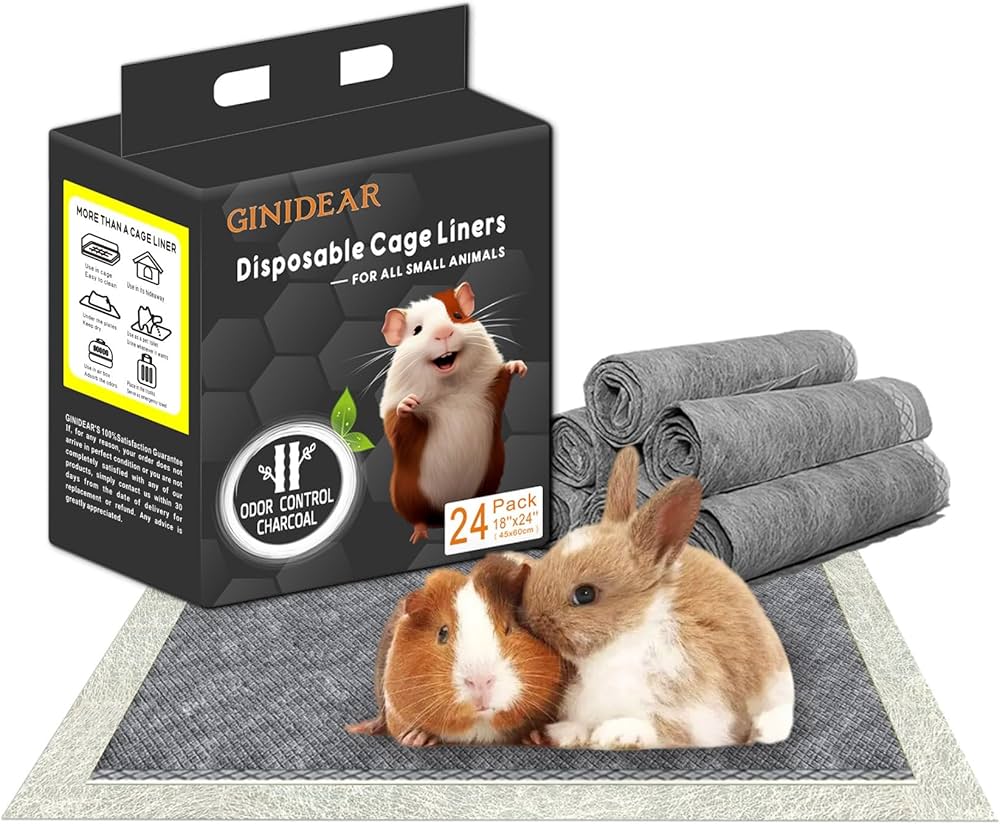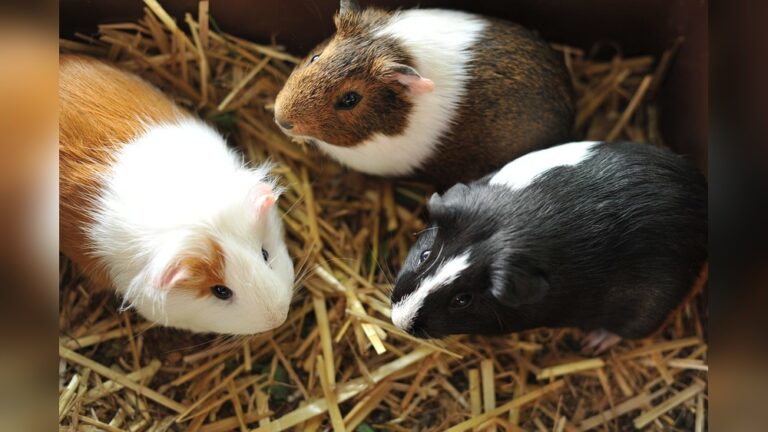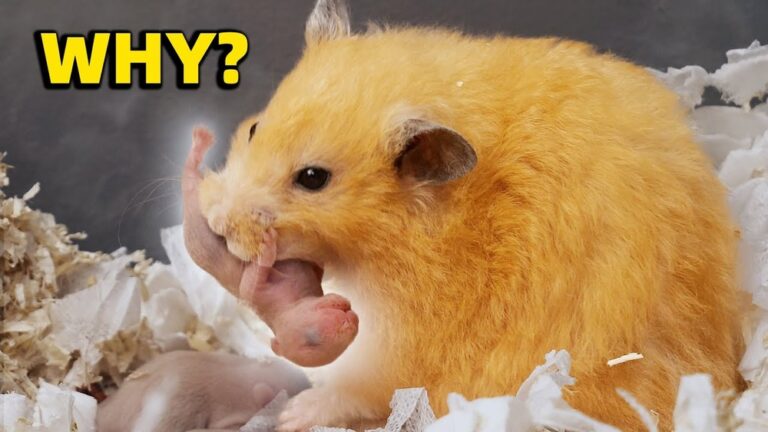Control Guinea Pig Odor: Simple Tips for a Fresh Cage Every Day
If you have a guinea pig, you know how much joy these little pets bring. But along with their cuteness comes a common challenge: odor.
That smell can quickly take over your home if you’re not careful. You might wonder, “How can I keep my guinea pig smelling fresh without stressing them out? ” This article will give you simple, effective tips to control guinea pig odor.
By the end, you’ll feel confident in creating a cleaner, fresher space for both you and your furry friend. Keep reading to discover easy ways to enjoy your pet without the unwanted smells.
Causes Of Guinea Pig Odor
Understanding the causes of guinea pig odor is important for every owner. Odor can come from different sources. Knowing these helps keep your pet and home fresh.
Diet And Digestion
What your guinea pig eats affects its smell. Poor diet can cause bad odor. Foods that do not digest well create gas and waste. Fresh vegetables and hay are best. Avoid sugary or fatty treats. A healthy diet supports good digestion and less odor.
Cage Cleanliness
A dirty cage is a common cause of smell. Urine and droppings build up quickly. Bedding that is not changed often traps odor. Clean the cage regularly. Use safe and absorbent bedding. A clean home keeps your guinea pig smelling fresh.
Health Issues
Some health problems cause strong odors. Skin infections or urine issues can smell bad. Dental problems may affect eating and digestion. Watch for signs like redness or swelling. Take your guinea pig to the vet for check-ups. Early care helps control odor from health issues.
Daily Cleaning Routine
Keeping your guinea pig’s living space clean every day helps control odor effectively. A daily cleaning routine prevents bad smells and keeps your pet healthy. Small tasks done daily make a big difference in freshness.
Spot Cleaning Techniques
Check your guinea pig’s cage daily for dirty spots. Remove soiled bedding and droppings quickly. Use a small scoop or paper towel to clean wet areas. This stops odor from building up fast. Spot cleaning keeps the cage fresh between full cleans.
Changing Bedding Regularly
Replace bedding every few days to avoid strong smells. Use soft, absorbent bedding made for guinea pigs. Remove all old bedding during changes to clean the base well. Fresh bedding absorbs urine and controls odor better. Clean bedding keeps your pet comfortable and healthy.
Cleaning Food And Water Containers
Wash food bowls and water bottles every day. Use warm water and mild soap to remove dirt and bacteria. Rinse containers well to avoid soap residue. Clean containers help prevent mold and bad smells. Fresh food and water encourage your guinea pig to eat and drink well.
Choosing The Right Bedding
Choosing the right bedding is key to controlling guinea pig odor. Bedding absorbs moisture and traps smells. It also keeps your pet comfortable and healthy. Picking good bedding helps keep the cage fresh and clean for longer.
Absorbent Materials
Absorbent bedding soaks up urine quickly. This stops bad smells from spreading. Materials like paper-based bedding or wood pulp work well. They hold moisture and keep the cage dry. Dry bedding means less odor and a happier guinea pig.
Odor Control Options
Some bedding has special odor control features. Activated charcoal or baking soda mixed in can reduce smells. These options help keep the cage air fresh. Choose bedding that balances odor control without harming your pet.
Safe Bedding Choices
Safety matters most when picking bedding. Avoid cedar or pine shavings. They release oils that can harm guinea pigs’ lungs. Use paper, aspen, or fleece bedding instead. These materials are gentle and safe for your pet’s health.
Proper Ventilation And Cage Placement
Proper ventilation and cage placement play a big role in controlling guinea pig odor. Good air flow helps remove bad smells and keeps the cage fresh. Placing the cage in the right spot also reduces dampness and odor buildup. These steps create a healthier home for your pet and a nicer space for you.
Ideal Cage Location
Choose a bright room with natural light for the cage. Avoid direct sunlight that can make the cage too hot. Keep the cage away from kitchens or bathrooms to reduce strong smells. A quiet place with some fresh air is best. This helps keep the guinea pig calm and the air clean.
Improving Airflow
Place the cage near a window or vent for better air movement. Keep the area around the cage clear to avoid blocking air. Use a fan on low speed if the room feels stuffy. Good airflow lowers moisture and stops odors from settling. Change bedding often to help air stay fresh inside the cage.
Avoiding Humidity
Keep the cage dry to stop bad smells and mold. Use absorbent bedding that soaks up urine quickly. Check the cage daily for wet spots and clean them fast. Avoid placing the cage in damp basements or near humidifiers. Lower humidity means a healthier, less smelly home for your guinea pig.
Diet Adjustments To Reduce Odor
Diet plays a big role in controlling guinea pig odor. Choosing the right foods helps reduce smell naturally. A balanced diet supports good digestion and less waste odor. Small changes in what your guinea pig eats can make a big difference in how they smell.
Fresh Vegetables And Hay
Fresh vegetables add moisture and nutrients to your guinea pig’s diet. They help keep the digestive system healthy. Hay is essential for fiber and helps control odor by aiding digestion. Always provide unlimited fresh hay and a variety of vegetables daily. Avoid overfeeding vegetables that cause gas or strong smells.
Limiting Sugary Treats
Sugary treats can upset your guinea pig’s stomach. Too much sugar leads to smelly waste and digestive problems. Limit treats like fruits and commercial snacks to small amounts. Use treats as occasional rewards, not daily foods. Focus on natural, low-sugar options to keep odor down.
Hydration Tips
Water is key for a healthy digestive system and reducing odor. Ensure fresh water is available at all times. Change the water daily to keep it clean. Proper hydration helps waste pass smoothly, reducing strong smells. Use a water bottle to avoid contamination and spills.

Credit: www.amazon.com
Regular Grooming Practices
Regular grooming helps keep your guinea pig clean and fresh. It lowers bad smells and keeps their skin healthy. Grooming also builds trust and makes your pet happy. Simple steps done often can stop odor before it starts. Focus on brushing, bathing, nail care, and skin checks. These habits improve your pet’s life.
Brushing And Bathing
Brush your guinea pig’s fur daily to remove dirt and loose hair. Use a soft brush made for small pets. This prevents mats and spreads natural oils. Bathing is rarely needed but helps if your pet gets very dirty. Use warm water and a gentle shampoo made for guinea pigs. Dry your pet well to avoid chills.
Nail Trimming
Trim your guinea pig’s nails every few weeks. Long nails cause discomfort and can trap dirt. Use small pet nail clippers and cut carefully. Avoid the quick, the pink part with blood vessels. Short nails reduce the chance of bad smells from dirt buildup.
Checking For Skin Issues
Look at your guinea pig’s skin during grooming. Check for redness, bumps, or hair loss. These signs may mean infections or parasites. Clean skin means less odor and better health. Visit a vet if you see any problems early.
Dealing With Persistent Odor
Persistent odor from your guinea pig can be frustrating. It may signal a deeper problem than just a dirty cage. Knowing how to handle this issue helps keep your pet healthy and your home fresh.
Some odors come from health issues. Others come from poor cleaning habits. Taking the right steps quickly is important.
When To Consult A Vet
If the smell does not go away after cleaning, see a vet. A strong, unusual odor may mean your guinea pig is sick. Vets can find infections or other problems early. Early care prevents serious health issues.
Identifying Health Problems
Check your guinea pig for signs of illness. Look for discharge, swelling, or skin changes. Notice if your pet scratches a lot or acts tired. These signs often link to odor problems. Health issues need prompt treatment.
Using Safe Deodorizers
Choose deodorizers made for small pets. Avoid harsh chemicals that harm guinea pigs. Natural options like baking soda can help. Use them sparingly in the cage bedding. Always ensure good ventilation to reduce smells safely.

Credit: www.amazon.com

Credit: www.guineadad.com
How Smart Pets Lover Can Help You with Control Guinea Pig Odor
Turning Guinea Pig Odor Control into a Learning Experience
Understanding how to control guinea pig odor is more than just a chore—it’s an opportunity to deepen your bond with your furry friend. By paying close attention to daily cleaning routines and choosing the right bedding, you’re not only managing smells but also creating a healthier environment for your pet. Observing how proper ventilation and cage placement affect odor can teach you valuable lessons in pet care that extend beyond just guinea pigs.
- Notice how changing bedding materials impacts odor levels and your pet’s comfort.
- Experiment with slight diet adjustments to see how they influence your guinea pig’s natural scent.
- Document your grooming routine to find what helps keep odors at bay while keeping your pet happy.
At Smart Pets Lover, we believe every step you take in managing your pet’s well-being is a chance to learn and grow together. If you need more insights or have specific questions, reaching out to local veterinarians or pet care communities can be a great way to stay informed and confident in your care approach.
Frequently Asked Questions
How Often Should I Clean My Guinea Pig’s Cage?
Clean your guinea pig’s cage at least once a week. Spot clean daily to remove soiled bedding and waste. This prevents odor buildup and keeps your pet healthy and comfortable.
What Bedding Is Best To Reduce Guinea Pig Odor?
Use absorbent, dust-free bedding like paper-based or aspen shavings. Avoid cedar or pine, as they can cause respiratory issues. Proper bedding helps control moisture and reduces unpleasant smells.
Can Diet Affect My Guinea Pig’s Odor?
Yes, a balanced diet rich in hay, fresh veggies, and vitamin C lowers odor. Avoid sugary or processed foods that upset digestion and cause strong smells. Good nutrition promotes overall health and less odor.
How Do I Control Guinea Pig Urine Smell Effectively?
Change bedding regularly and provide a litter box if possible. Clean urine spots promptly with pet-safe cleaners. Proper hygiene and ventilation help minimize urine odor in the cage.
Conclusion
Controlling guinea pig odor helps keep your home fresh and clean. Regular cage cleaning and good ventilation make a big difference. Feeding your pet a healthy diet also reduces smell. Using proper bedding and spot cleaning daily saves time. Small habits bring big results.
Enjoy your pet without worrying about bad odors. Keep these tips in mind for a happy, clean environment. Your guinea pig will thank you with health and happiness. Simple steps lead to a fresher home for both you and your pet.






